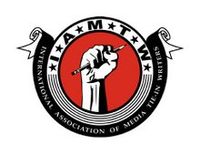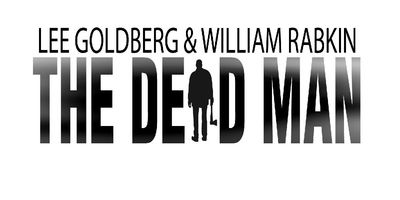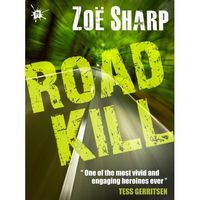The Mail I Get
How not to solicit a review:
The digital galley proofs of my new biothriller XYZ are now ready for review. […]I am not requesting a complete review, just one to three sentences giving your general opinion of the novel. You probably won't need to read the entire book, just enough of it to to form some general impressions. Of course, if you prefer reading it all the way through in order to write a more complete review, please do.
Dated Angels
My favorite jab at the new Charlie's Angels came from the New York Times:
ABC has marketed the remake with the slogan “These are not your mother’s Angels.” And that is certainly true — they are your grandmother’s Angels, throwbacks to an era when there was something contrary and cute about a woman with flowing hair and a lethal karate chop.
Priorities
I'm always trying to juggle my family and work committments to figure out the best, and most productive, use of my time. Unfortunately, writing a post for my blog always ends up at the bottom of the list. It's not like I don't have things to say about television, publishing, or the writing process…or pet peeves to vent about, publishing scams to rant about or ridiculous emails to ridicule. My "For the Blog" file on my hard-drive is full of emails, links and tidbits. But between my deadlines, business meetings, and family obligations, I just haven't had the time to pay much attenton to this blog. I don't know how my friends Ken Levine and Bill Crider manage to post new material every day…
IAMTW Suspends Dues for 2012
 These are tough financial times…and writers, particularly those in the tie-in field, are hurting.
These are tough financial times…and writers, particularly those in the tie-in field, are hurting.
We want to do our small part to help out.
The International Association of Media Tie-in Writers is suspending annual dues for current and new members effective immediately and on through 2012…dues will be re-instated on January 1, 2013.
That doesn’t mean we’ll be shutting down and riding out the economic storm…quite the opposite.
We’ll continue to introduce our members to tie-in editors and licensing execs with our quarterly mailing of member credits and contact info…we’ll continue to put out TIED-IN, our newsletter about tie-in writing…we’ll continue to give out the Scribe awards for excellence in media tie-in writing…and we’ll continue to moderate our highly popular private discussion board for media tie-in professionals.
And over the next month or two, we will also be renovating our website, freshening up our Facebook presence, and adding an audio category to our Scribe Awards.
We hope this will not only help our current members but also draw some new professional tie-in writers into the fold.
A Big Deal for THE DEAD MAN
 Okay, I can finally reveal some of the big news I've been dying to share with you…
Okay, I can finally reveal some of the big news I've been dying to share with you…
I am thrilled to announce that Amazon's Thomas & Mercer imprint has picked up THE DEAD MAN series in a unique and exclusive 12-book digital & print deal … with an option for more. But that's not all. Brilliance Audio will be also be rolling out their own editions of the books.
The five books that we've already published — FACE OF EVIL, RING OF KNIVES, HELL IN HEAVEN, THE DEAD WOMAN, and THE BLOOD MESA — will be re-released in the days leading up to Halloween … so keep your eyes peeled for great offers.
The sixth book in the series will be released in November and will be followed each month by another new adventure in the continuing saga of Matt Cahill, a man resurrected from the dead to battle evil among us that only he can see.
Amazon will also be releasing three-book compilations of THE DEAD MAN series in trade paperback (as well as in specially priced digital editions). The release dates of the first compilation, and the Brilliance Audio editions, have not been determined yet … but we’re hoping they'll be ready for Christmas.
Bill Rabkin and I will continue to run the series, which we're writing with a terrific group of action, horror, mystery, SF and western authors, like James Daniels, David McAfee, James Reasoner, Harry Shannon, Joel Goldman, Mel Odom, Jude Hardin, Lisa Klink, Mark Ellis, Matthew Mayo, Joe Nassise, Bill Crider, Matt Witten, Marcus Pelegrimas, Burl Barer, and Phoef Sutton.
And we couldn't have hoped for a better partner than Amazon’s Thomas & Mercer. I just returned from meeting with the Thomas & Mercer team (including editors Terry Goodman and Andy Bartlett) in Seattle and was blown away by their creativity, enthusiasm, and eagerness to see THE DEAD MAN reach its full potential. They get exactly what Bill and I are trying to do with this series.
And what is that, you ask?
We want to capture the spirit of the “men’s action adventure” paperbacks of the 70s and 80s – short, tightly-written books full of hard-boiled heroes, outrageously sexy women, wild adventure, and gleefully over-the-top plots – and reboot the genre for a new generation that maximizes the potential of the Kindle.
And with Thomas & Mercer behind us, I don't see how we can fail.
Ebook Sales Are Skyrocketing, Paperback books Are Plummeting
According to figures released today by the Association of American Publishers, so far this year ebook sales are up 167% while paperbacks have plunged 64% and hardcovers have dropped 25%. It's a safe prediction that the holiday season will create a sharp spike in ebook sales and an even steeper drop in paperback and hardcover sales. It won't be long now until the mass market paperback becomes virtually extinct.
Road Kill
 My good friend Zoe Sharp's terrific novel ROAD KILL is now available as an ebook…and it includes a teaser chapter from my soon-to-be-published crime novel KING CITY.
My good friend Zoe Sharp's terrific novel ROAD KILL is now available as an ebook…and it includes a teaser chapter from my soon-to-be-published crime novel KING CITY.
ROAD KILL is Zoe's fifth novel in the acclaimed Charlie Fox series. Here's the scoop:
Still bearing the emotional scars from her traumatic first bodyguarding job in the States, Charlie Fox returns to her former home to try and work out both her personal and professional future.
Instead of the peace for which she's been hoping, Charlie is immediately caught up in the aftermath of a fatal bike crash involving one of her closest friends. The more she probes, the more she suspects that the accident was far from accidental − and the more she finds herself relying on the support of her troubled boss, Sean Meyer, despite her misgivings over the wisdom of resuming their relationship.
And Charlie's got enough on her plate trying to work out who suddenly wants her dead. The only way to find out is to infiltrate a group of illegal road racers who appear hell-bent on living fast and dying young.
Taking risks is something that ex-Special Forces soldier Charlie knows all about, but doing it just for kicks seems like asking for trouble. By the time she finds out what's really at stake, she might be too late to stop them all becoming road kill


